Principal Investigator
Gregory Lippiatt
Gregory Lippiatt is a lecturer in medieval history at the University of Exeter. His research concentrates on the political role of the Francophone aristocracy settled around the Mediterranean during the thirteenth century and their interaction with contemporary reform initiatives. Among articles, book chapters, and edited collections, he has published a monograph on Simon of Montfort, leader of the Albigensian Crusade (1208–1229) and is currently preparing a critical edition and analysis of the Statutes of Pamiers (1212).

Co-Investigator
Maximilian Lau
Maximilian Lau is a Junior Research Fellow at Worcester College, Oxford, and a member of St Cross College, having previously been an adjunct professor of economic history at Hitotsubashi University, Tokyo. He wrote his doctorate on twelfth-century Byzantium and the Crusades, for which he carried out extensive fieldwork in the Balkans and the Middle East. He has published articles and book chapters on subjects such as Islamic warrior women, Armenian prophecy, Turkish civil wars, the Byzantine Navy and Middle Eastern influences upon Frank Herbert’s Dune. His monograph on the Byzantine Emperor John II Komnenos (1118-1143) will be published in 2023.
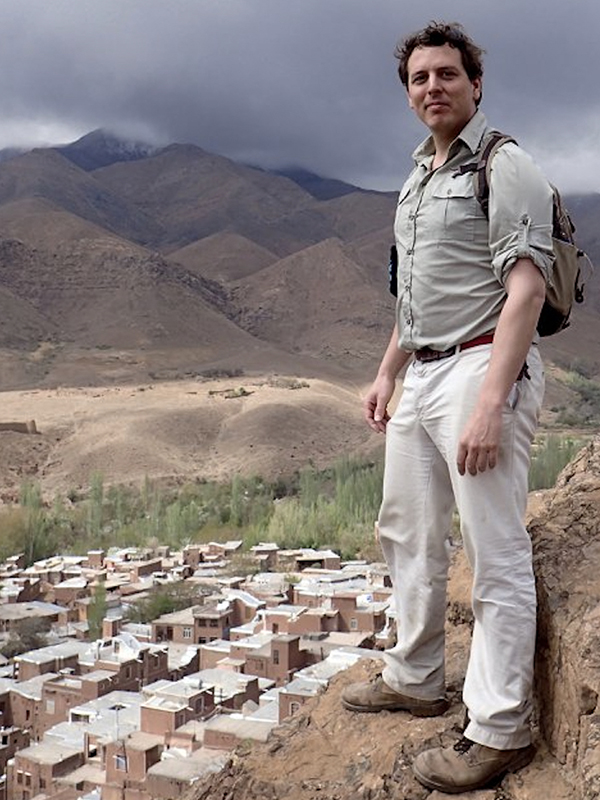
Supervisory Board
Nandini Chatterjee
Nandini Chatterjee is Professor of South Asian history at the University of Exeter, UK. She works across traditional time periods, with a book and several articles on British colonialism and law in South Asia, and a prize-winning monograph Negotiating Mughal Law on legal practice in the Indo-Islamic Mughal empire. Nandini is a keen linguist with speaking and reading abilities in several languages, including Persian, Hindi, Urdu, Bengali and some Arabic, and has a particular interest in creating databases and digital editions of texts associated with law, especially in Right-to-Left script languages, such as Arabic. Nandini is one of the editors of the English Historical Review and an active member of the Exeter Decolonising Network.

Bernard Gowers
Bernard Gowers is a medieval historian at the University of Oxford, and Senior Policy Adviser to the Conference of Colleges. His academic background is in France during the central Middle Ages, but he has also published work on global medieval comparisons. His most recent paper is on the utility of the concept of creolization in relation to Latin Europe during the twelfth and thirteenth centuries.

Catherine Holmes
Catherine Holmes is a Byzantinist who is interested in globalising the study of the Middle Ages. She is currently Professor of Medieval History at Oxford and a tutorial fellow at University College. She published a major study of the reign of the Byzantine emperor Basil II in 2005. In the past decade she has been involved with collaborative projects concerned with the later medieval eastern Mediterranean; comparative political culture across the Byzantine, Islamic and western medieval worlds; and the study of the global Middle Ages. She is the co-editor of volumes of essays which have resulted from these projects.

Yasuhiro Otsuki
Yasuhiro Otsuki is a board member and Vice-President of Hitotsubashi University, Tokyo, Japan. He also served as Dean of Department of Economics 2015-2017 at Hitotsubashi. Otsuki is leading expert in the field of Medieval European and Byzantine History in Japan, and is especially interested in the socio-economic structure of Byzantine Empire. His publications mainly concern civil donations to ecclesiastical institutions as well as the State-Church relationship in Byzantine Society.

Nicholas Vincent
Nicholas Vincent has published a dozen books and some hundred academic articles on various aspects of English and European history in the 12th and 13th centuries, having arrived at Norwich via Oxford, Cambridge, Paris and Canterbury. He is currently finishing an edition of the charters of the Plantagenet kings and queens from Henry II to King John, and leads a major project researching the background to Magna Carta. He is a Fellow of the British Academy.

Network Members
Africa
Adam Simmons
Adam Simmons is a Leverhulme Early Career Fellow at Nottingham Trent University. His research focuses on African regional and inter-regional connectivity between the fourth and sixteenth centuries, particularly concerning Nubia, Ethiopia, and Kongo. He has published on a range of topics to date, including the relationship between Nubia, Ethiopia, and the crusading world (Routledge, 2022), the Nubian king in Constantinople in 1203 (Medieval Encounters, 2022), the Kongolese adoption of crusading ideology (Historical Journal, 2022), Nubian diasporas (Dotawo, 2019), and the changing image of Nubians in Old French crusader songs (Croisades en Afrique, ed. B. Weber, 2019).

Asia-Pacific
Mikael S. Adolphson
Mikael S. Adolphson is a broadly trained historian with a strong interest in medieval societies. He studied medieval religions in southern France at Lund University before suddenly being inspired to switch focus to Japan. Nevertheless, he took with him an interest in Annales history to the Japan field, and accordingly studies a wide variety of topics, ranging from social structures, ideologies, mentalité, religious institutions, legal history, historical documents and international trade. In addition, he has a strong interest in how historical narratives have been and are constructed, both in the past and in the present.
Following appointments at the University of Oklahoma, Harvard University, and the University of Alberta, Adolphson moved to the University of Cambridge in 2016, where he has been Chair of Japanese Studies, Head of the Department of East Asian Studies, and Co-Chair of the Faculty of Asian and Middle Eastern Studies.
Adolphson’s main publications includeLovable Losers: The Heike in Action and Memory (2015), The Teeth and Claws of the Buddha: Monastic Warriors and Sohei in Japanese History (2007), Heian Japan, Centers and Peripheries (2007) and The Gates of Power: Monks, Courtiers and Warriors in Premodern Japan (2000). His current project focuses on Sino-Japanese trade in the twelfth century, with a special focus on the import of Chinese copper coins, which eventually led to a monetised economy in the thirteenth and fourteenth centuries.

Sukhee Lee
Sukhee Lee is an historian of China’s middle period, from the 12th through the 14th century. Though he is primarily a social historian, interested in tension and cooperation between the government and social elites in this period, he is also very much interested in how such relationships were expressed in the intellectual history of the time. Currently, he is working on the idea of good government put forth in local officials’ handbooks, and how the state responded to various administrative challenges at the local level, by focusing on a late 13th century scholar-official, Huang Zhen. Born and educated in South Korea (BA and MA), he obtained his PhD from Harvard University in 2009. He is an Associate Professor of History at Rutgers University-New Brunswick.

Ruth Mostern
Ruth Mostern is Professor of History and Director of the World History Center at the University of Pittsburgh. She is the author of two single-authored books: Dividing the Realm in Order to Govern: The Spatial Organization of the Song State, 960-1276 CE (Harvard Asia Center, 2011), and The Yellow River: A Natural and Unnatural History (Yale University Press, 2021). She is also co-editor of Placing Names: Enriching and Integrating Gazetteers (Indiana University Press, 2016), and of a special issue of Open Rivers Journal (2017). She is the author or co-author of over thirty articles published in books and peer reviewed journals. Ruth is Principal Investigator and Project Director of the World Historical Gazetteer, a prize-winning digital infrastructure platform for integrating databases of historical place name information. Her research has been funded by entities that include the US National Endowment for the Humanities, the US National Science Foundation, the American Council of Learned Societies, and others. She has held visiting positions in China, Australia, and the United States. At present she is working on a diverse range of research projects: one about the history of climate, erosion, and settlement in northwest China; one about the global history of textual genres for the representation of place, and one about the limits of sustainability in the Anthropocene. Ruth received her Ph.D. from the University of California, Berkeley in 2003 and was Founding Faculty at the University of California, Merced, where she spent 13 years before moving to Pitt in 2017.
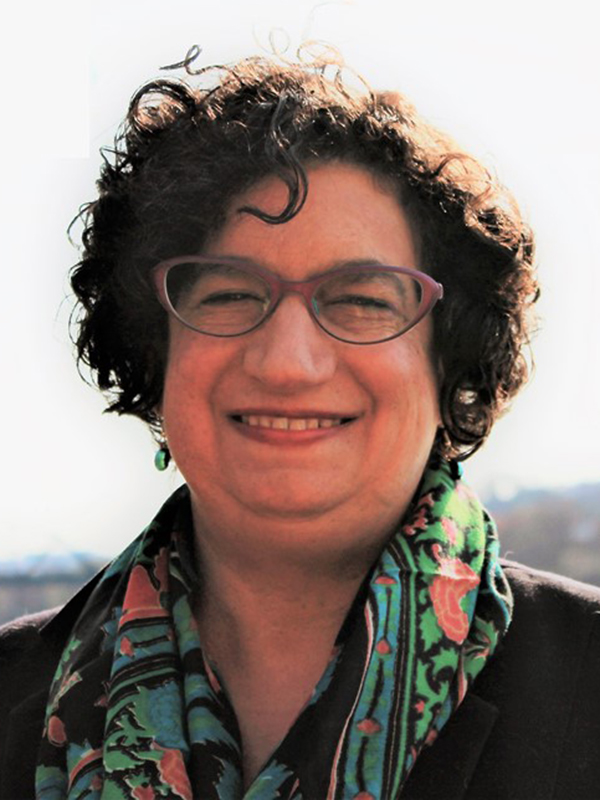
Byzantium
Jean-Claude Cheynet
Jean-Claude Cheynet is emeritus professor of Byzantine history and honorary member of the Institut universitaire de France (2008-2013). A former researcher at the French CNRS (1977-1995), he is also a member of the Academia Europaea. He edited the Revue des études byzantines from 1996 to 2005 and co-edited the Studies in Sigillography from 2003 to 2016. He studies mainly the political, military and administrative role of the Byzantine aristocracy, which was the backbone of the state under the Macedonians and the Komnenoi (Pouvoir et contestations à Byzance (963-1210), Paris 1990; The Byzantine Aristocracy and its Military Function, Aldershot 2006). His other research area is on lead seals (La société byzantine. L’apport des sceaux, Paris 2008) and the edition with a commentary of lead seals catalogues (The last ones are: Les sceaux byzantins de la collection Yavuz Tatış, Izmir 2019); Les sceaux byzantins de la collection Savvas Kofopoulos, Tome 1, Paris 2022.

India
Abhishek Kaicker
Abhishek Kaicker is an historian of Persianate South Asia (c. 1200-1900) with expertise in the history of the Mughal empire. He is interested in questions of intellectual history and the history of concepts; early modern global history; religion, politics and the city; and more generally in the continuities between precolonial and postcolonial south Asia.
His first book, The King the People: Sovereignty and Popular Politics in Mughal Delhi (OUP 2020) shows how ordinary urbanites emerged as assertive political subjects in the Mughal capital of Shahjahanabad (Delhi) over the turn of the seventeenth and eighteenth centuries.
Together with Professors Asad Ahmed (Berkeley) and Lawrence McCrea (Cornell), he is an editor of the Journal of South Asian Intellectual History, a new peer-reviewed venue for emerging conversations on the intellectual history and culture of premodern South Asia.
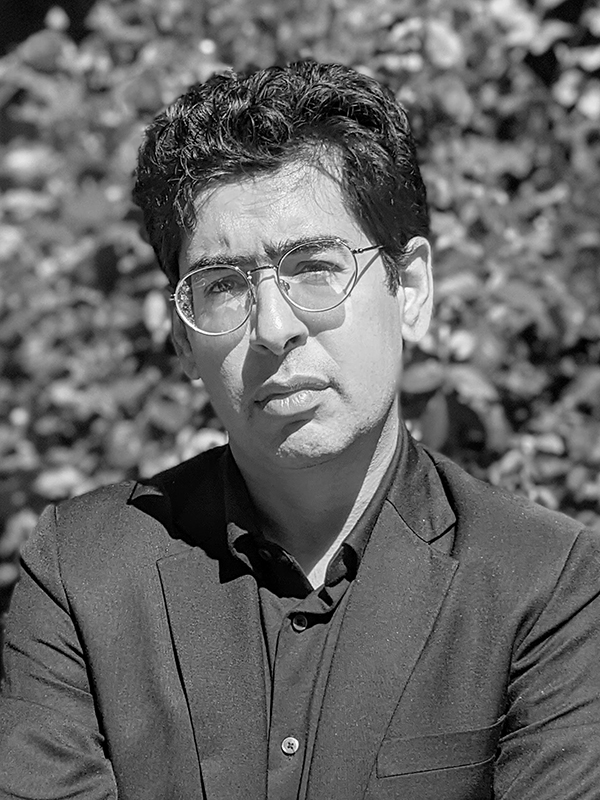
Hasan Siddiqui
Hasan Siddiqui is a historian of South Asia specializing in early-modern intellectual history. His research interests include the history of political thought, the history of the book, and the social and cultural history of the Mughal empire. He holds a PhD in History from the University of Chicago and serves as an associate editor of the Journal of South Asian Intellectual History.
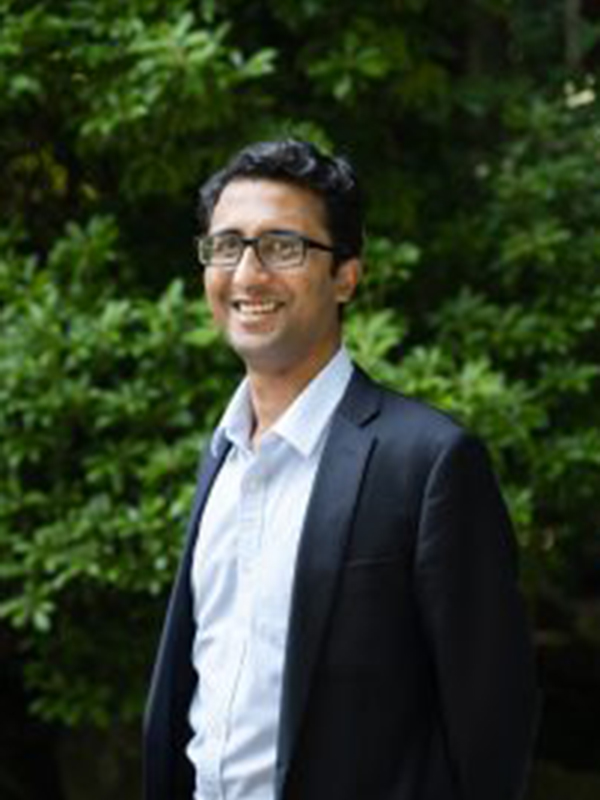
Islamic World
Amira K. Bennison
Amira K. Bennison is Professor in the History and Culture of the Maghrib at the University of Cambridge and a Professorial Fellow at Magdalene College. Her research interests include the medieval Islamic West, Maghribi modes of legitimation and cultures of power, and 19th-century Muslim religio-political engagement with modernity. Her publications include The Almoravid and Almohad Empires (Edinburgh, 2016), The Articulation of Power in Medieval Iberia and the Maghrib, edited (Oxford, 2014); The Great Caliphs, (London, 2009); Cities in the Premodern Islamic World, edited with Alison L. Gascoigne, (London, 2007); Jihad and its Interpretations in Pre-Colonial Morocco, (London, 2002), as well as numerous articles. Amira also contributes regularly to television programmes on Islamic history and is a frequent guest on BBC Radio 4’s ‘In Our Time’ and other radio programmes and podcasts on Islamic history. She is currently completing a book on legitimacy and urbanism in the medieval Maghrib.

Alexander Mallett
Alexander Mallett is Associate Professor in the Faculty of International Research and Education and a member of the team of the Chair of the State of Qatar for Islamic Area Studies at Waseda University in Tokyo. He received a PhD in Islamic History from the University of Edinburgh in 2009, and since then has worked at a number of institutions in Europe, including the University of Birmingham, Royal Holloway University of London, Exeter University, and Leiden University. His work examines relations between Muslims and Christians in the Middle Ages, focusing particularly on the Crusades during the period of Frankish settlement in the Levant (1097-1291). His publications have included Popular Muslim Reactions to the Franks in the Levant (Ashgate, 2014), the edited volumes Medieval Muslim Historians and the Franks in the Levant (Brill, 2014) and Franks and Crusades in Medieval Eastern Christian Historiography (Brepols, 2020), and the co-edited 5-volume reference set Christian-Muslim Relations. A Bibliographical History, 600-900 (Brill, 2010-2013). He is currently working on a project on Muslim perspectives on the Crusades from the medieval period until today.

The Steppe: The Rus and the Mongols
Angus Russell
Angus Russell is in the final stages of his PhD at the University of Cambridge, where his research focusses on the transmission of Mongol fiscal models to Moscow across the long fifteenth century, from the reigns of Vasilii I (1389-1425) to Vasilii III (1505-33). By assessing charter evidence in particular, his project seeks to define the interplay of Muscovite institutional norms with their analogues in the Qipchaq Khanate (‘Golden Horde’) and its successor polities. Building on his earlier work investigating both the Mongol relay network (iam) and forms of Inner Asian landholding, Angus is interested in delineating forms of mediation between putatively nomadic and sedentary societies. To this end, he explores how such bureaucratic transmission mirrored contemporary ideological currents that perceived the khans’ rule as antithetical to Byzantine imperial heritage, alongside comparing the evolution of Muscovite practice with administrative innovation in neighbouring regions of Eurasia.
Before starting at Cambridge, Angus obtained his undergraduate degree in History and Russian, and his master’s degree in Late Antique and Byzantine Studies, at the University of Oxford; during his doctorate he has also spent time at the Institut national des langues et civilisations orientales (INALCO) in Paris.

Western Europe
Sophie Ambler
Sophie Ambler is a Reader in Medieval History, Deputy Director of the Centre for War and Diplomacy, and a Research Fellow at The Ruskin at the University of Lancaster. Her research explores political ethics and war in the central and later Middle Ages. This includes books on bishops in the political community of thirteenth-century England and on Simon de Montfort (d.1265), who led a campaign to seize power from the king and establish conciliar government. Her new research, supported by a Philip Leverhulme Prize, explores the experiences, cultures and responsibilities of low-status combatants. She enjoys writing for and speaking to a broad public audience, whether through talks or TV, radio and print. In Michaelmas Term 2022, she is a Visiting Fellow at All Souls College, Oxford.
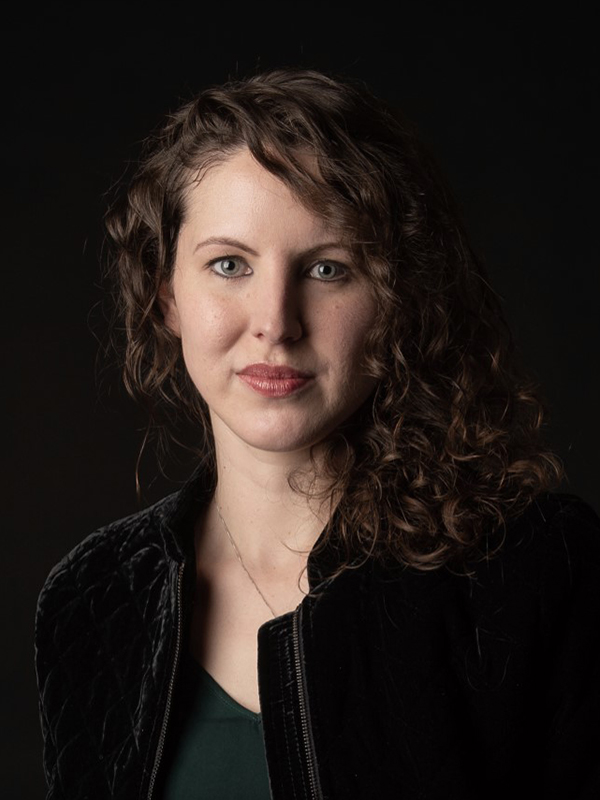
Alice Taylor
Alice Taylor is Professor of Medieval History at King’s College London. She works on law, politics and state formation in the high Middle Ages in Europe, and she is currently writing a book on politics and political language over the long twelfth century. Her previous work focussed on law and government in medieval Scotland, figuring out how the complex manuscript tradition of medieval Scots law changed our understanding of the form of royal government in the kingdom. She has been awarded the Royal Historical Society’s Whitfield Prize in British & Irish History and the Philip Leverhulme Prize for History.

Emily Winkler
Emily Winkler is a Lecturer in Medieval History at St Edmund Hall & Hertford College, University of Oxford. She is a cultural historian of medieval Europe. Her research interests range widely across the high medieval past, including historical writing, history of ideas, emotion and health, society, political thought, and material culture.
Her current work considers how writers of history in Britain, Ireland, and northwestern Europe (1100–1300) evaluated good government across national borders. She is particularly interested in questions around stewardship, care and custodianship in government, and ideas about shared lordship or governing on behalf of another. Her work explores writing about nobles and their relationships with rulers, especially in cases of contested agreements, disputed territories, and challenges to loyalty. Medieval writers working in a colonial world offer an intriguing comparison to other writers globally, especially those who offered dissenting interpretations of a conflicting history of lordship, invasion, or conquest in a particular place.
The author and editor of several books on medieval history, Emily recently completed a research fellowship at Oxford as Principal Investigator of an Arts and Humanities Research Council project, with Co-Investigator Nia Wyn Jones (Bangor). She and Nia are writing a book based on the project about historical thinking in England and Wales and Britain’s Roman past. Emily earned an interdisciplinary degree in Medieval and Renaissance Studies, History, and Classics from Dartmouth College (USA), and an M.St. in Medieval Studies and D.Phil. in History from the University of Oxford.
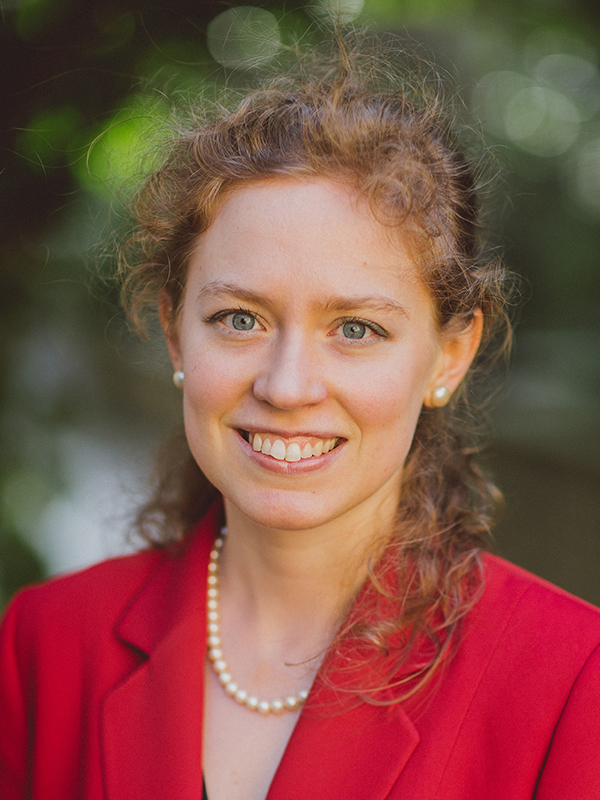
Associate Members
Susannah Bain
Susannah Bain is doctoral candidate at the University of Oxford. Her research focuses on the cities of later medieval Italy and their political and social connections with the wider Mediterranean region. Her doctoral thesis considers the relationship between history-writing and broader contexts of political communication in late thirteenth-and early fourteenth-century Italy. Beyond this, she is interested in comparative approaches to the study of the past and the intersections between the environment and politics.
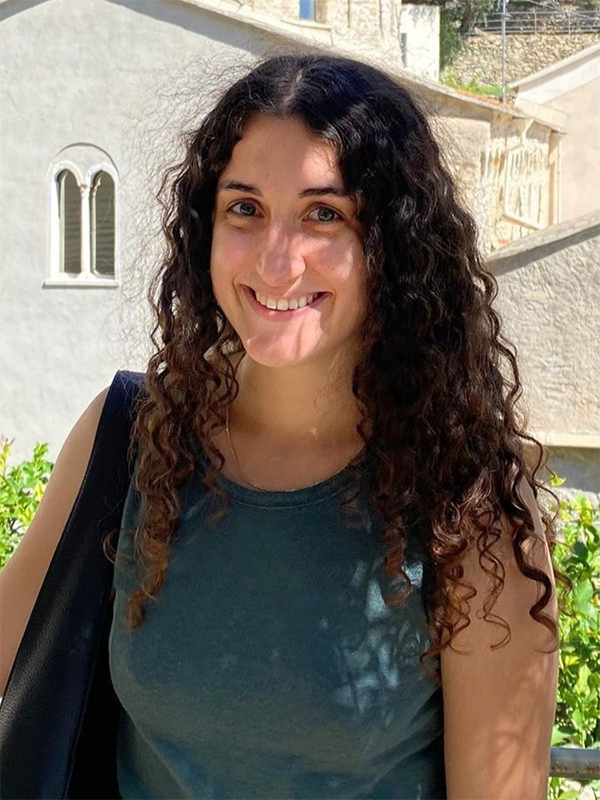
Thomas Booth
Thomas Booth is a doctoral candidate in Japan Studies at Trinity College, Cambridge. His research explores the shogunal issuance of ‘virtuous governance’ or tokusei during Japan’s medieval period, with a particular focus on the so-called tokusei uprisings that erupted across the Kyoto countryside in the early fifteenth century.

James Cogbill
James Cogbill is a doctoral candidate in History at Worcester College, Oxford. His research explores the mutually-inscribing interconnectivity of the premodern ruling family and ‘political culture’ – the framework of structures, practices and expectations within which political actors operated, and by which they were constrained – in the late medieval Byzantine Empire.

Daniel Franke
Daniel Franke is Associate Professor of History at Richard Bland College of William and Mary, in Petersburg, Virginia. He works on the military history of the Hohenstaufen dynasty and the Hundred Years War, with an emphasis on network analysis, the socio-economic context to conflict, and the influence of geography and human networks on military operations. His previous work includes studies on purveyance, the German crusading tradition, and Staufen operations in Lombardy. He is currently finishing a monograph on Frederick Barbarossa’s campaigns and is in the early stages of a study on the Staufen dynasty and crusading. In the context of Noblesse Oblige?, he is examining the prevalence of noble feuding in the Holy Roman Empire from the 11th to 13th centuries and its impact on public order and governance.

Mario Lafuente Gómez
Mario Lafuente is a Reader in Medieval History at the University of Zaragoza (Spain). His research interests are focused on war, power, and public finances of the Late Medieval Crown of Aragon. He is the author of Guerra en ultramar. La intervención aragonesa en el dominio de Cerdeña (1354-1355), Zaragoza, 2011; Dos Coronas en guerra. Aragón y Castilla (1356-1366), Zaragoza, 2012; and Un reino en armas. La guerra de los Dos Pedros en Aragón (1356-1366), Zaragoza, 2014. He has edited some books about Economic and Social History and is the author of several papers and book chapters. He is also the author of the chapter about the Crown of Aragon in the volume War in the Iberian Peninsula. 700-1600, edited by Joao Gouveia Monteiro and Francisco García Fitz (Routledge, 2018).
He is the PI of a research project funded by the Spanish Ministry of Science and Innovation which discusses noble rebellion and other political and social conflicts in the Iberian Peninsula from a comparative point of view: Conflicto, rebelión y revuelta social en la Baja Edad Media. Las Coronas de Aragón y Castilla (siglos XIII-XV) (CORE). Subproyecto 1: El Estado dividido. Contestación, conflicto y revuelta social en la Corona de Aragón (siglos xiii-xv). Una perspectiva comparada (PID2021-123286NB-C21).
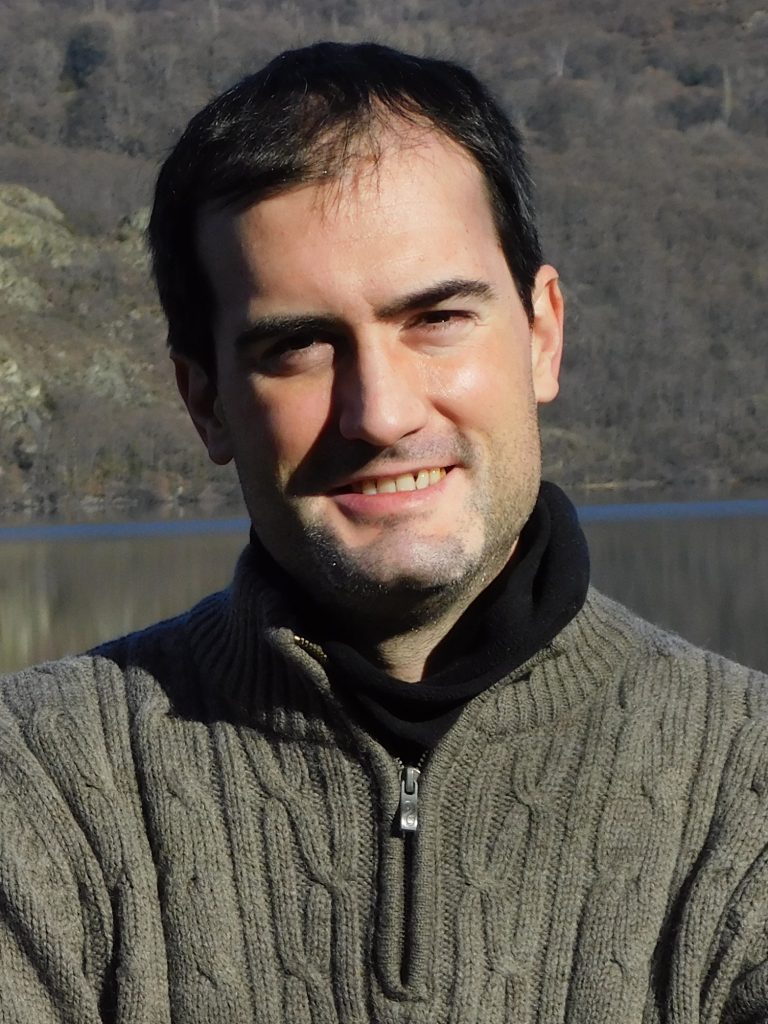
Fernando Arias Guillén
Fernando Arias is a Ramón y Cajal Fellow at the University of Valladolid (Spain). He works on kingship in Castile in the 13th and the 14th centuries. His previous research focused on warfare in the Iberian Peninsula in the Late Middle Ages. Among other books, articles, and book chapters he wrote a monograph on royal power in Castile, The Triumph of an Accursed Lineage: Kingship in Castile from Alfonso X to Alfonso XI (1252-1350), published by Routledge in 2021.
His current research analyses noble rebellions in Castile. He is the PI of a research project funded by the Spanish Ministry of Science and Innovation which discusses noble rebellion and other political and social conflicts in the Iberian Peninsula from a comparative point of view: Conflicto, rebelión y revuelta social en la Baja Edad Media. Las Coronas de Aragón y Castilla (siglos XIII-XV) (CORE). Subproyecto 2. Enfrentarse al rey: rebeliones, estado y cultura de la política en Castilla desde una perspectiva comparada (siglos XIII-XV) (PID2021-123286NB-C22).
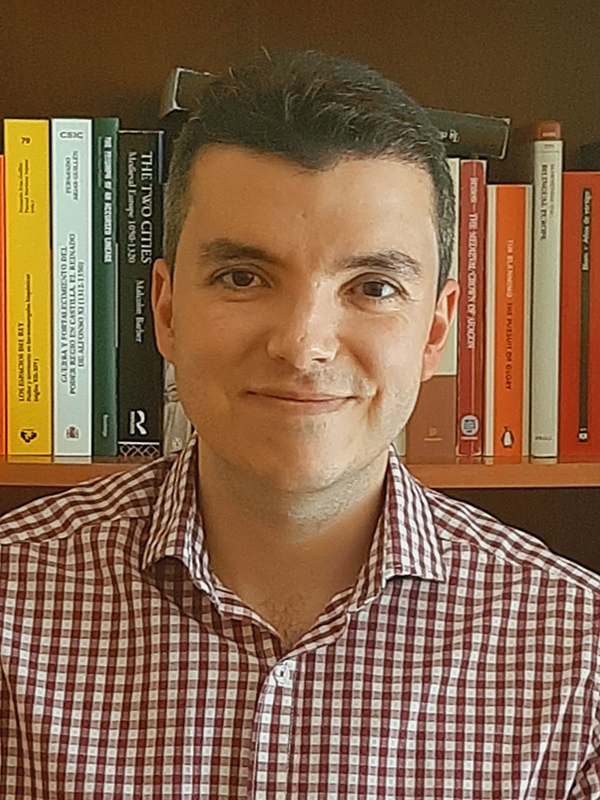
Patrick Hegarty Morrish
Patrick Hegarty Morrish is a doctoral student at the University of Oxford. For his DPhil project he is working on shepherding in the mountains of the south of France from 1150-1350, and how shepherds interacted with their ecologies and with centres of governance. In the context of Noblesse Oblige?, he is interested in how elites—whether associated with centres of lordly or governmental power, or both—perceived and experienced mountain environments, how elites and government institutions attempted to control shepherding populations, how successful they were in doing so, and what relationships elites developed with shepherds along the way.

Lars Kjær
Lars Kjær is Associate Professor in Medieval History at Northeastern University London. He works on elite culture and political life in Europe in the central middle ages. His previous work includes studies of memories of the viking age, of the crusading movement and of rebellions, religion and politics in medieval England and Denmark. His first monograph, The Medieval Gift and the Classical Tradition: Ideals and the Practice of Generosity in Medieval England, 1100-1300 was published by Cambridge University Press in 2019. In 2022 he published Valdemar den Store: Borgerkrigens barn with major Danish publisher Gad. It is the first biographical study of one of Denmark’s most important and controversial medieval kings, Valdemar I ‘the Great’ (r. 1157-1182).
He is currently part of the research project Ambiguities of Hospitality: Intercultural Integration and Conflict in Host-Guest Relations financed by a grant from the Swedish research Academy. Other current work includes studies of the medieval aristocracy’s engagement with ideas about the holy and the right order of the world, and a political history of medieval Denmark, 1086-1286. It explores the changing relationship between crown, aristocracy, and people between 1086, when Denmark’s proto-martyr, Cnut IV, was killed by rebellious peasants, and 1286, when his successor, Erik V Klipping, was murdered by an aristocratic conspiracy.

John Marshall
John Marshall is a final year PhD candidate at Trinity College Dublin and a current RHS Centenary Fellow at the IHR from 2023-4. His research analyses transnational lordship and politics in thirteenth-century Britain and Ireland. John’s thesis focuses on the Marshal earls of Pembroke and lords of Leinster, in particular how their influence on the ‘peripheries’ of the Plantagenet empire brought them influence and patronage at the core. His thesis will also provide the first edition of the partition of the Marshal estates in 1247 after the male line of the family died out. John has published on aspects of his research in Irish Historical Studies (2023) and History: the Journal of the Historical Association (2023).

We believe that this network should continue to grow, and especially to incorporate parts of the world and viewpoint beyond the already broad specialities of our network members. Therefore we would like to offer associate membership to further schools.
